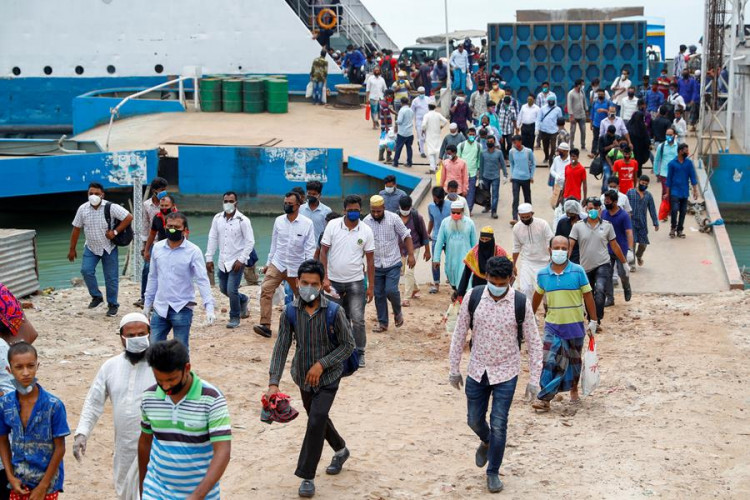Thousands of people were stranded in Dhaka, Bangladesh Monday as health officials halted nearly all public transport ahead of a tough new pandemic lockdown after a "dangerous and alarming" rise in Delta Covid-19 variant cases.
For seven days starting Thursday, no one will be allowed to leave their homes unless in an emergency, BBC reported.
Workplaces will be closed from Wednesday.
Health department representative Robed Amin said police and border guards would be deployed and the army may be involved if required.
Officials reported 119 fatalities Sunday - its record daily death toll - while new cases have been averaging about 5,000 for the past few days, Channel News Asia said.
Restrictions on movement and other activities have been in place since the middle of April.
Many hospitals and medical facilities are overwhelmed - particularly those on the border with India.
People hoping to leave the city have resorted to hiring private vehicles, or even walking, because of the transport closures. Some have squeezed into rickshaws or hopped on motorbikes to make their way to home villages.
"I started walking at 7 a.m. I can't afford a rickshaw ride," 60-year old Shefali Begum, who was going to her daughter's home in central Dhaka, told Agence France-Presse.
Ferries have been at capacity with some operating 24 hours a day and cramming more than 1,000 passengers onto each trip.
"We don't want them to overcrowd the ferry. But they don't listen. There's a mad rush of people," police sub-inspector Mohammad Reza told The Straits Times.
The lockdown was originally set to start Monday but has been postponed until Thursday. Some restrictions will still be enforced from Monday.
According to the BBC, low-income workers will be among the worst affected. Many of the people fleeing are migrant workers trying to get home.






